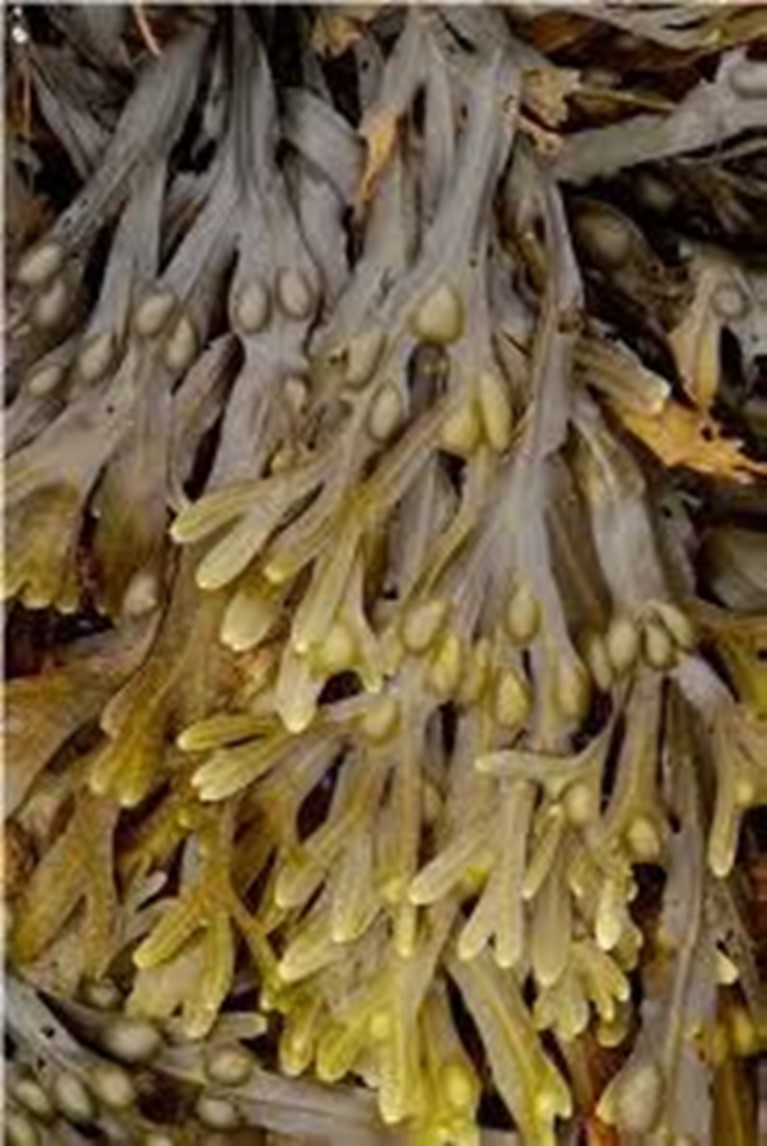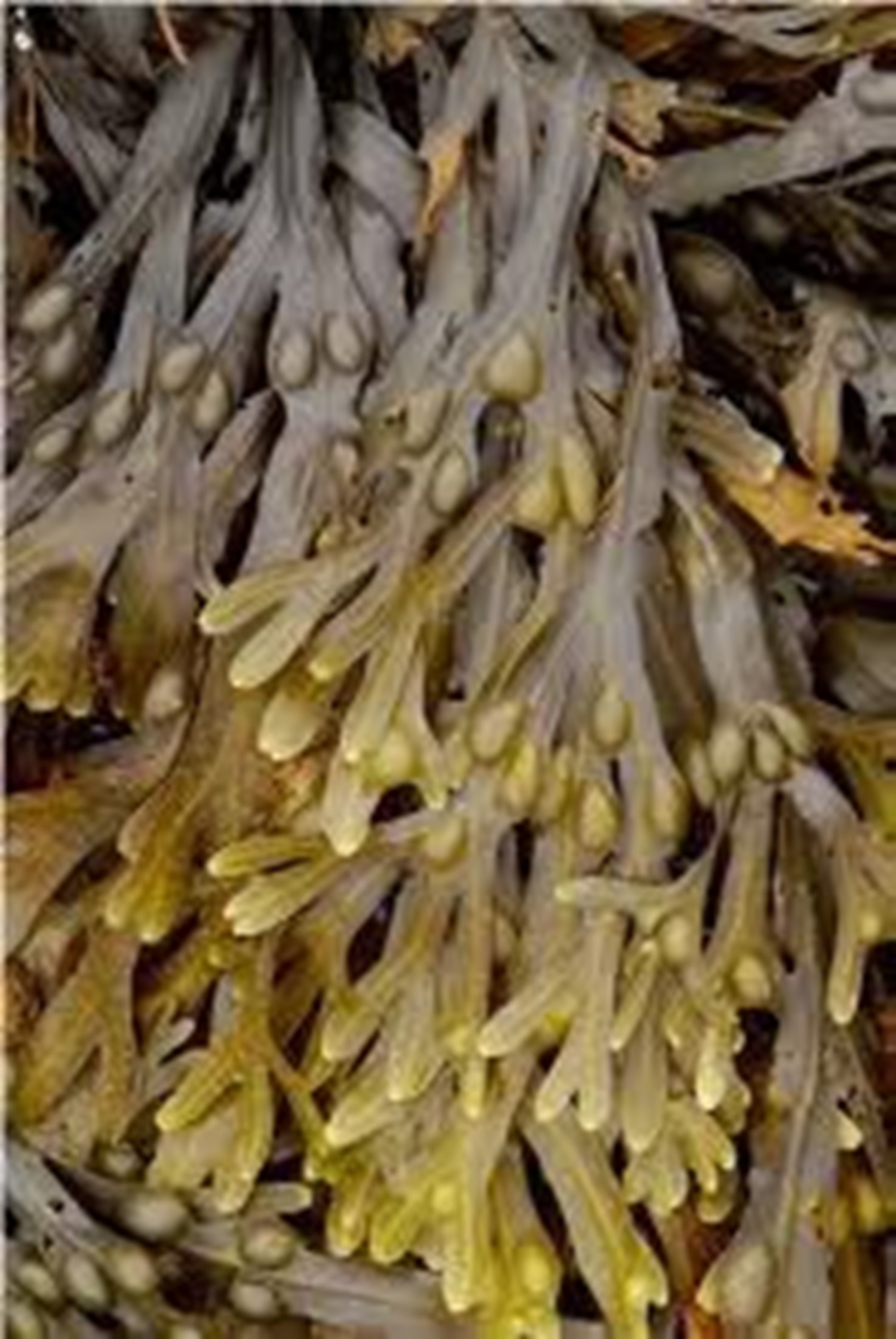A new scientific paper titled ‘Fucus vesiculosus extract inhibits the proteolytic activity and gene expression of matrix metalloproteinases in Atlantic salmon (Salmo salar L.)’ has just been published in the international journal Aquaculture International.
In the paper it is established that a seaweed extract can inhibit the collagenase activity in salmon.
Collagen is a protein, which is very important for the skeleton, the skin, and the connective tissues of the human body. The collagenase enzymes are a natural part of the body, but should the body lose control of the collagenase activity, the enzymes may break down collagen and cause great damage to the connective tissues of the human body. For this reason, the collagenase enzyme is associated with many illnesses, where the connective tissues in the human body are broken down. In the same way the collagenase enzymes found in fish may break down the connective tissue in fish fillets. In naturally occurring connective tissues collagen chains and other long molecular chains create a network, which binds the muscular layers together. Even small changes in this network can cause the connective tissue to tear, creating holes in the fillets. This is called ‘gaping.’ Gaping fillets are a problem for salmon producers because it means the product cannot be sold as first-class.
In the paper it is established that a seaweed extract called fucoidan can inhibit the collagenase activity in salmon. The collagenase activity in salmon kidneys is very high and research has previously shown that there is a distinct link between gaping and insufficient cleaning of the abdominal cavity during the gutting of the fish. Researchers have also pointed out that fucoidan can inhibit other enzymes, as for instance thrombin, which can activate the collagenase enzymes. Therefore, fucoidan can both inhibit the collagenase enzymes directly and indirectly (via thrombin).
The demand for salmon keeps growing while simultaneously the supply of raw materials for manufacturing aquaculture feed is steadily declining. Feed manufacturers and scientists have shown great interest in seaweed due to the possibility of using seaweed in aquaculture feed. In connection with this, multiple seaweed projects have been put on track both in a European and a North Atlantic context. The interest in farming is also growing on the Faroe Islands, and multiple Faroese companies have been established in the last few years with an eye to farming seaweed for human consumption as well as for aquaculture feed.
The scientific paper points out that seaweed containing fucoidan can possible be used in aquaculture to inhibit the collagenase activity in salmon and thereby decrease the amount of gaping.
The project is funded by the research fund of Research Council Faroe Islands, Statoil, and Fiskaaling. The work has been carried out at Fiskaaling, iNOVA, and at the University of the Faroe Islands. The authors are Jonhard Eysturskarð, Sunnvør í Kongsstovu, Daisy Færø, Ása Jacobsen, and Hóraldur Joensen.
The paper in its entirety can be found here:
http://link.springer.com/article/10.1007/s10499-017-0157-7?wt_mc=Internal.Event.1.SEM.ArticleAuthorOnlineFirst


